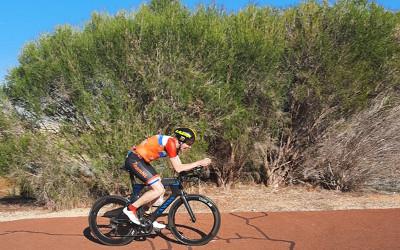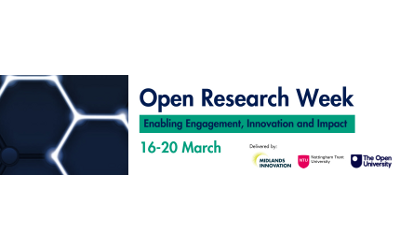Challenging misconceptions about transplant recipients' abilities

In an effort to challenge long-held misconceptions about the physical capabilities of transplant recipients, a team led by Professor Bart Rienties from The Open University is conducting innovative research that could transform the medical and public understanding of transplant recipients' potential for physical activity. This project aims to bridge the gap between medical assumptions and the lived experiences of transplant recipients who engage in physical activities.
Bart Rienties' journey into this research began with a personal revelation. As a transplant recipient himself, Professor Rienties discovered the World Transplant Games while waiting in a hospital in Milton Keynes. Competing for the first time in 2015 at the British Transplant Games, Rienties won a bronze medal, and has subsequently been the World Champion for cycling in the games, igniting his passion for both the competition and the potential for research in this area. This personal experience highlighted a significant gap between medical literature and real-world experiences of transplant recipients.
Initially the research, published in PLOS ONE, has focused on high-intensity athletes. However, it is now being broadened to include a complete spectrum of activity levels among transplant recipients, from sedentary individuals to those competing in ultra endurance sports like Ironman competitions. "The medical literature often uses a deficiency model, suggesting transplant recipients can't or should not engage in exercise due to immunosuppressants, high fatigue levels, and lower energy. However, many people I meet are competing in these incredible sporting activities following their transplants and this is often due to encouragement to participate in physical activities from peers or support networks, not health professionals" Professor Rienties explained.
Collaborative efforts and funding
The project's expansion was significantly bolstered by collaboration with Dr Keetie Roelen, a senior research fellow in the Centre for the Study of Global Development and Professor Ben Oakley from Sport & Fitness at The Open University. The research team, funded by a £35,000 Open Societal Challenges grant, includes sport psychologist Dr Leigh Martin. Together, they are exploring the barriers and facilitators of physical activity among transplant recipients.
The research spans both the UK and Australia, with data being collected from transplant recipients and their social networks from Oxford University Hospital, UK and the Prince Charles Hospital, Brisbane. This comparative approach aims to uncover universal factors that can inform guidelines for transplant recipients worldwide. "We believe that the social network around transplant recipients positively or negatively influences their ability to be physically active. The premise is that having just one physically active person in your network can increase your activity levels significantly," Professor Rienties noted.
Webinar and future directions
To disseminate findings and foster a broader discussion, Professor Rienties and Dr Leigh Martin hosted a webinar on 13 August 2024 for the World Transplant Games Federation. The aim of this event, primarily targeted at the transplant community but open to all, was to share insights and encourage participation in physical activities.
Looking ahead, the project team hopes to extend their research across the Four Nations, aiming to establish comprehensive, evidence-based guidelines for physical activity among transplant recipients – a much-needed resource which currently does not exist.
Changing the narrative
At its core, this research is about changing the narrative around transplant recipients and underscoring the importance of viewing transplant recipients through a lens of potential rather than limitation. By sharing his journey and advocating for others, Professor Rienties hopes to inspire a shift in how transplant recipients are perceived and supported. He and the project team advocate for a more inclusive and supportive approach in both medical practice and society at large.
Professor Rienties competed at the European Transplant Games in July, achieving gold on the 30K road race and silver on the time trial.
Contact our news team
For all out of hours enquiries, please telephone +44 (0)7901 515891
Contact detailsNews & articles

Open Research Week to spotlight innovation in 2026
Open Research Week will return from 16–20 March 2026, uniting Open University researchers and partners to explore how open practices drive engagement, innovation and societal benefit.